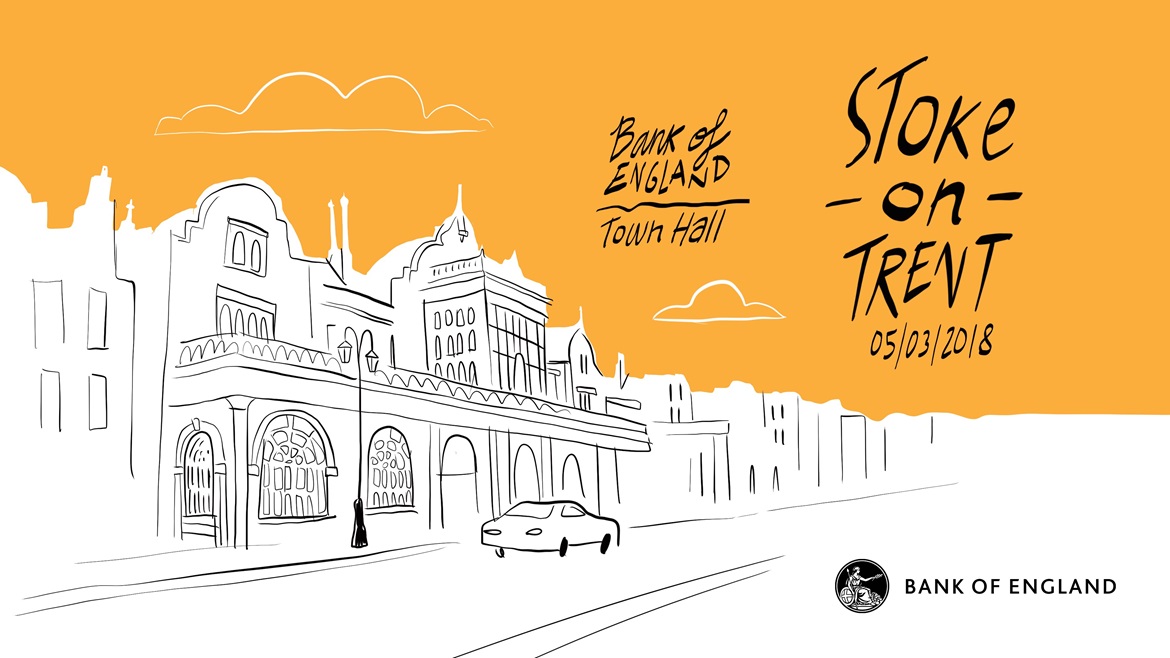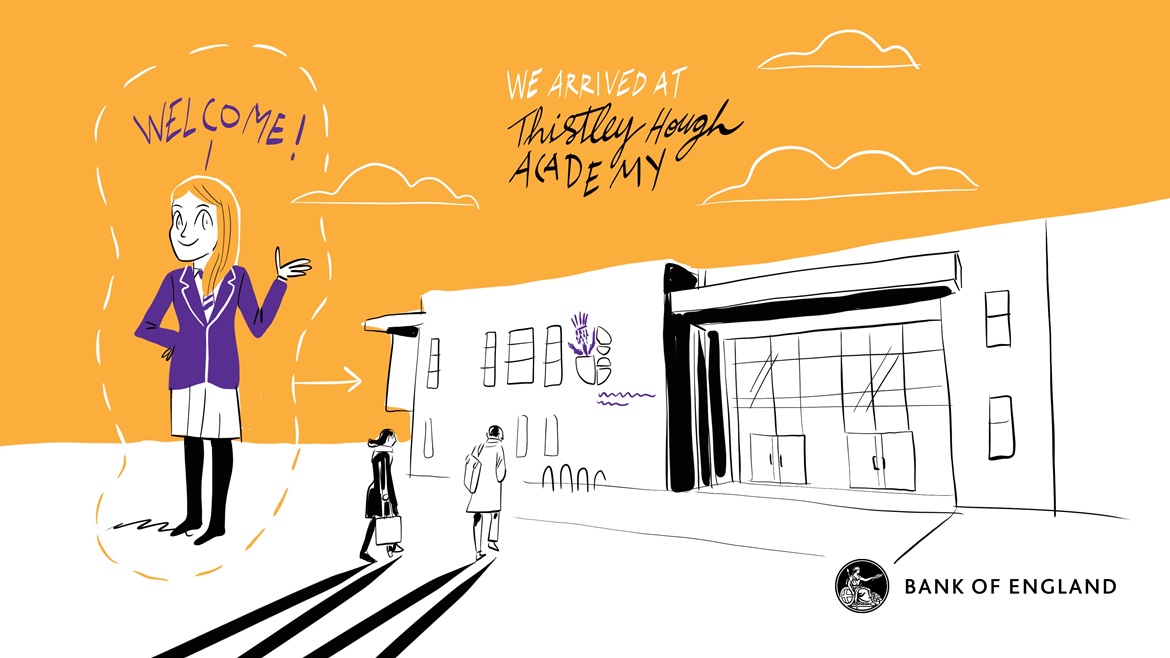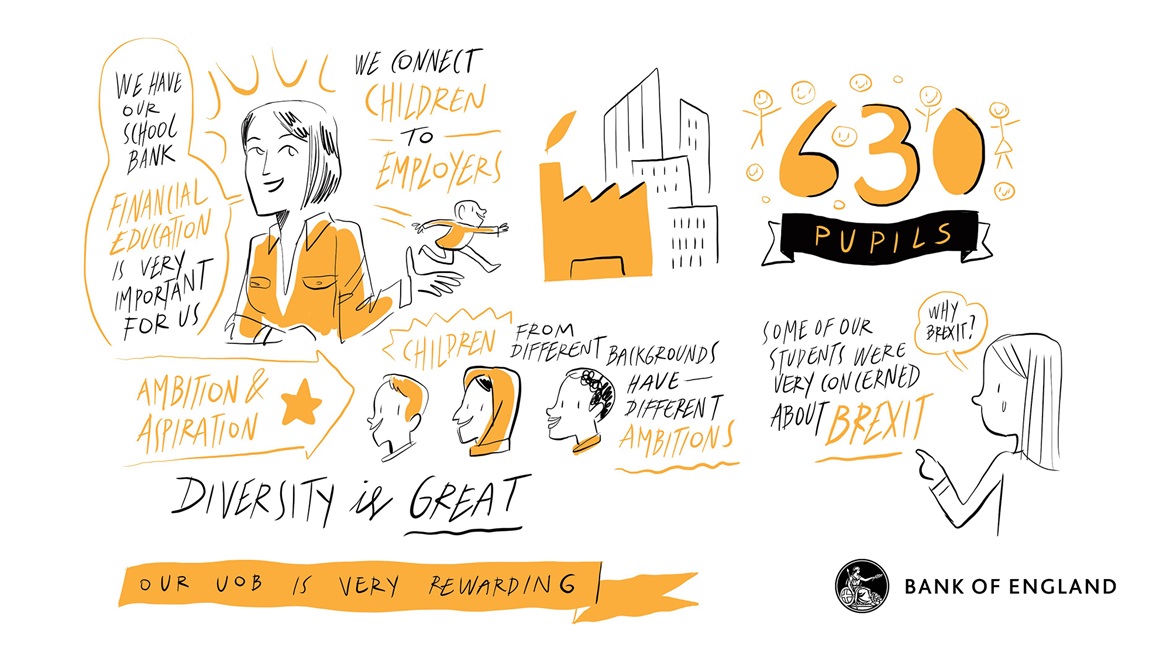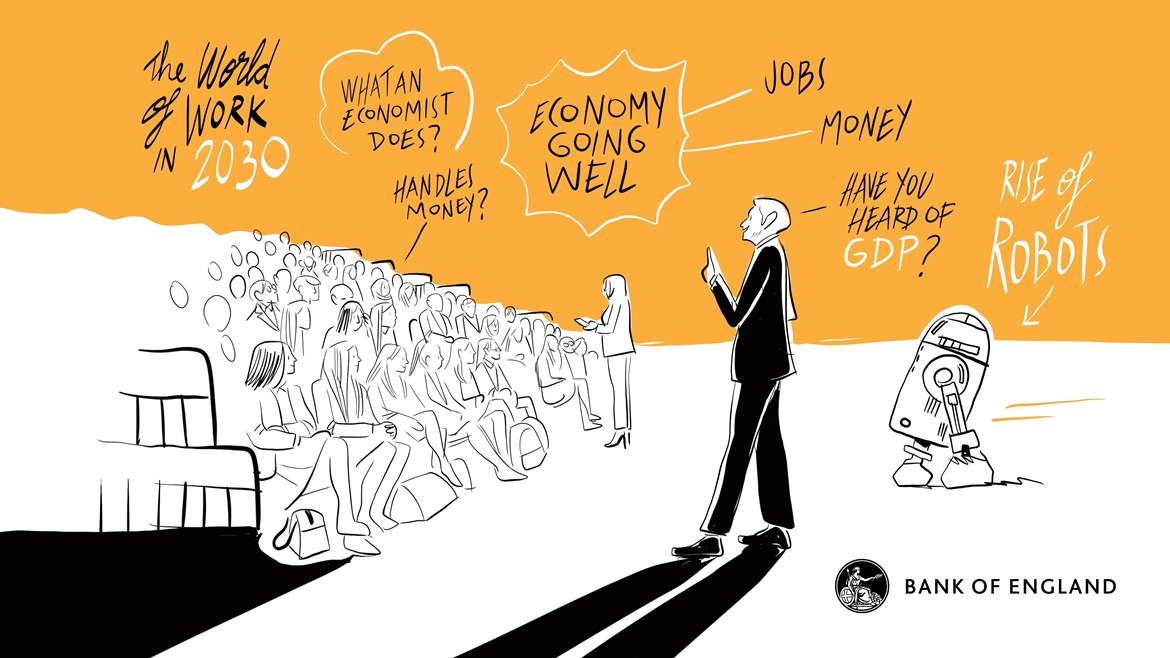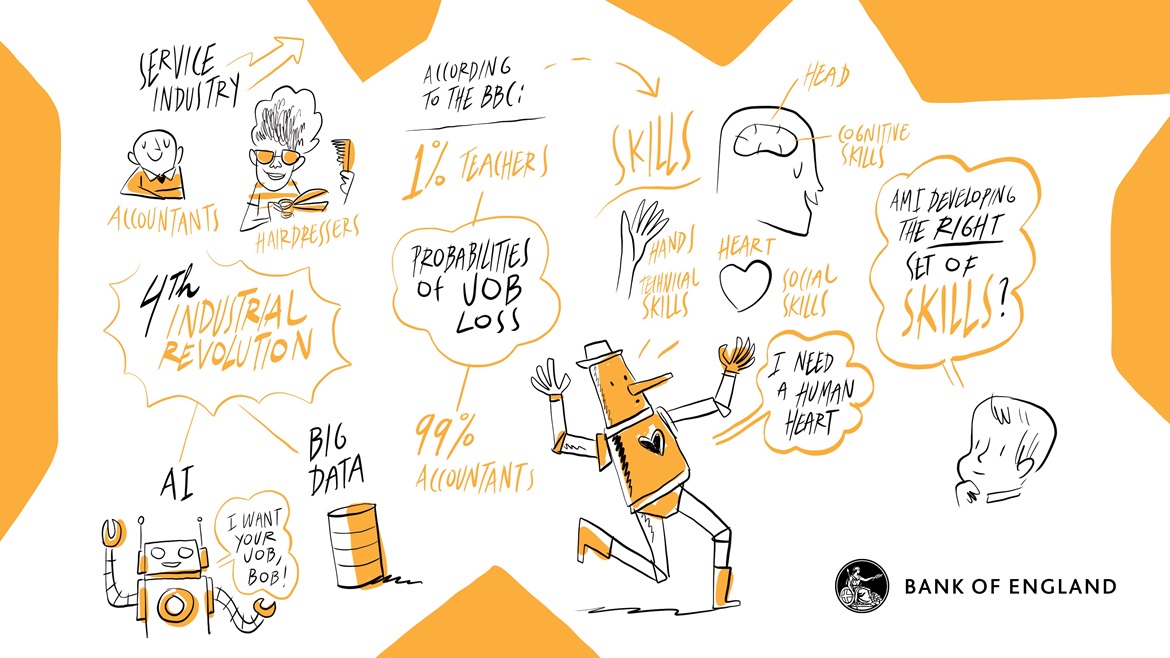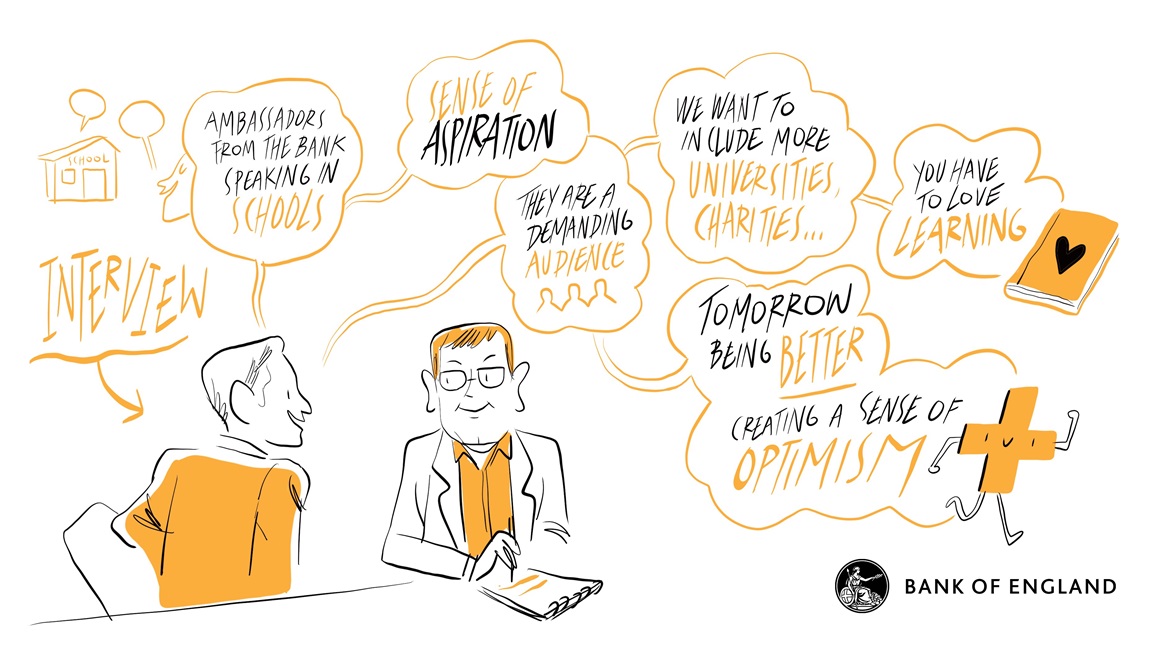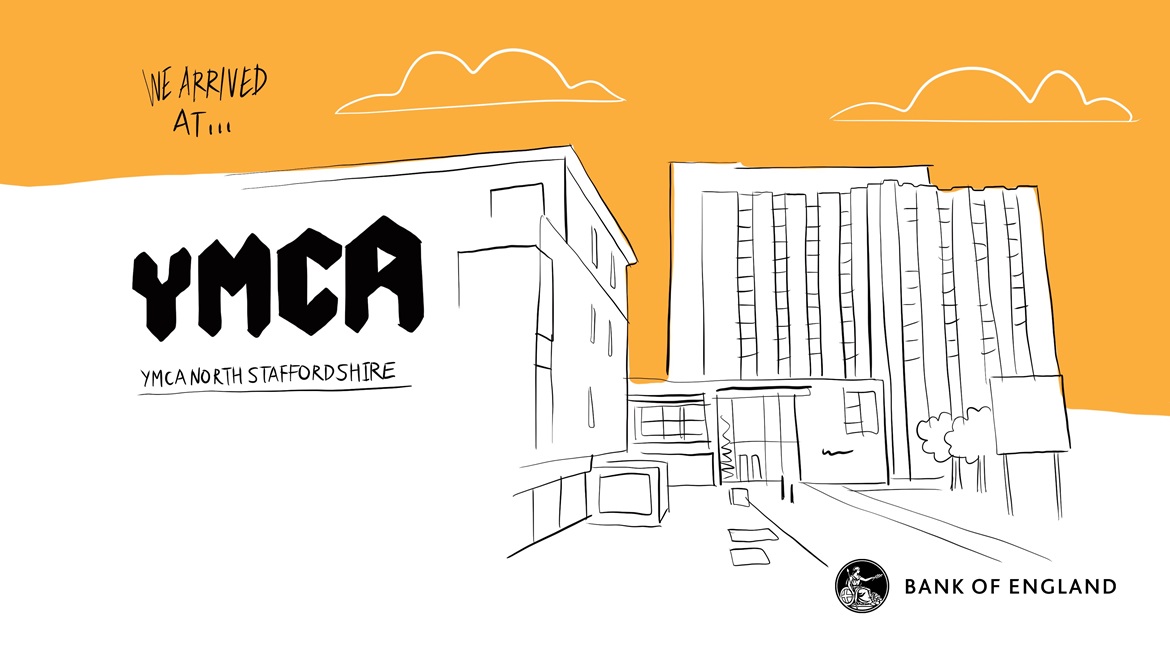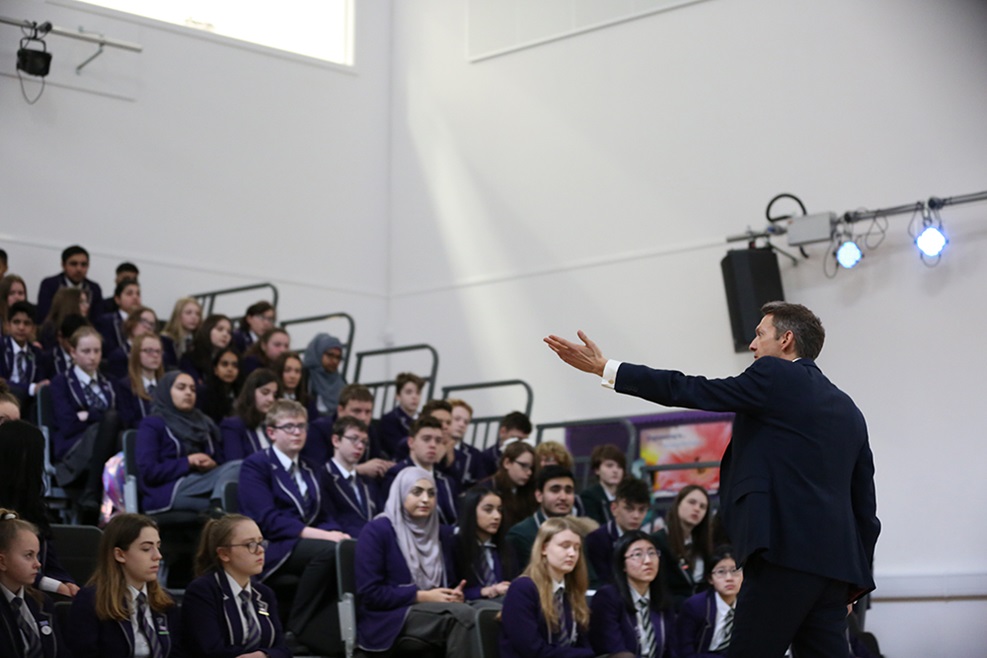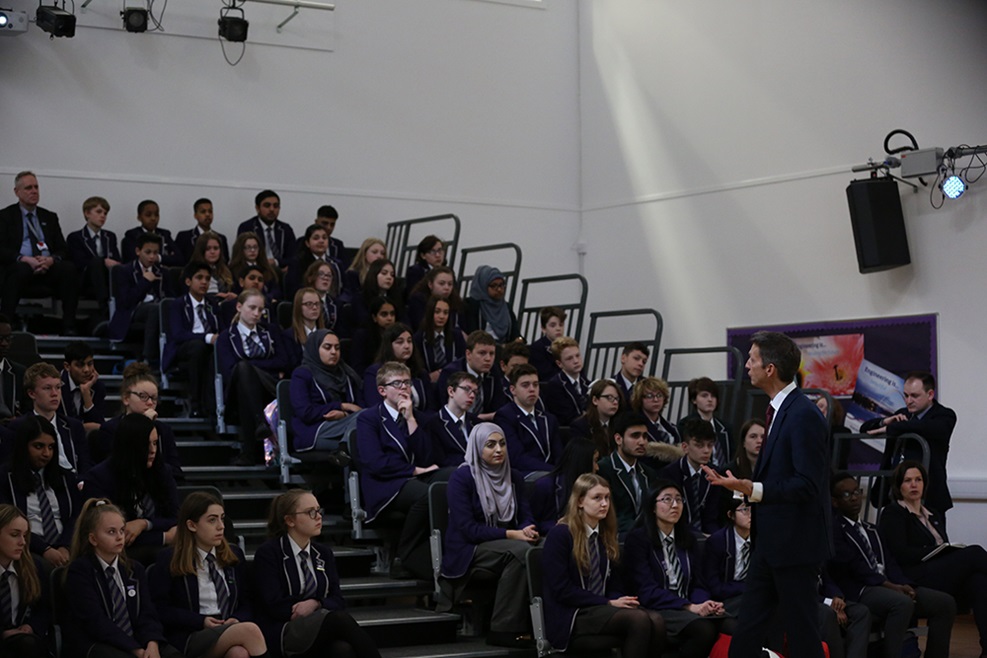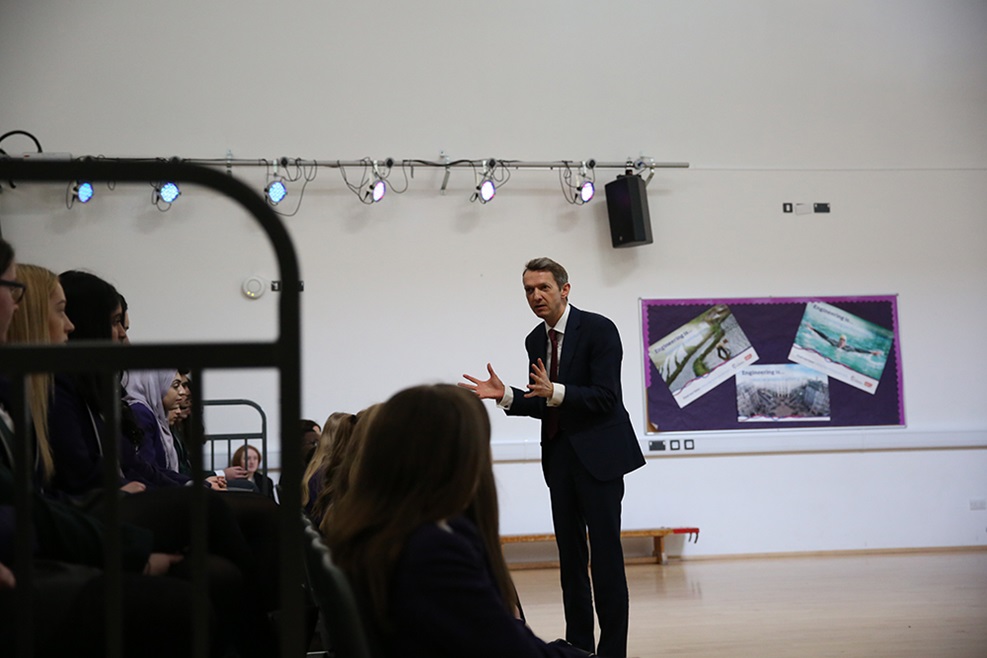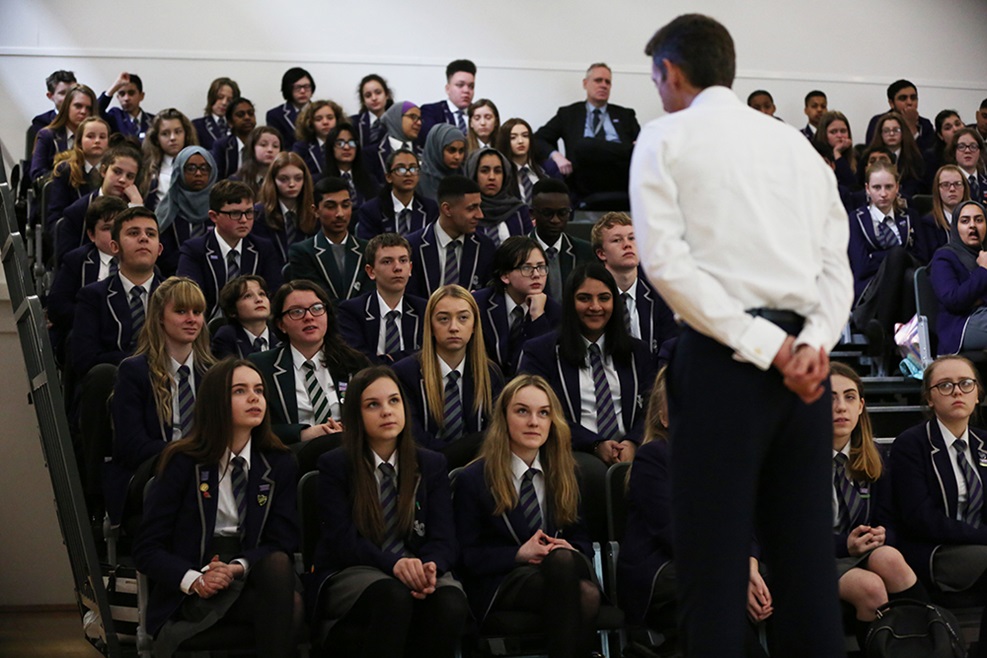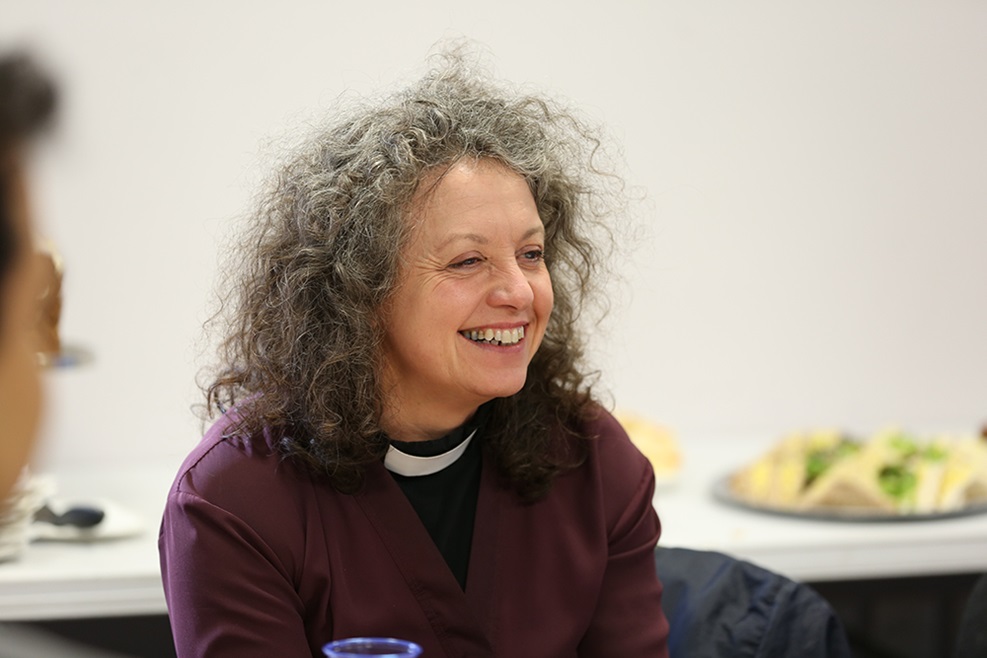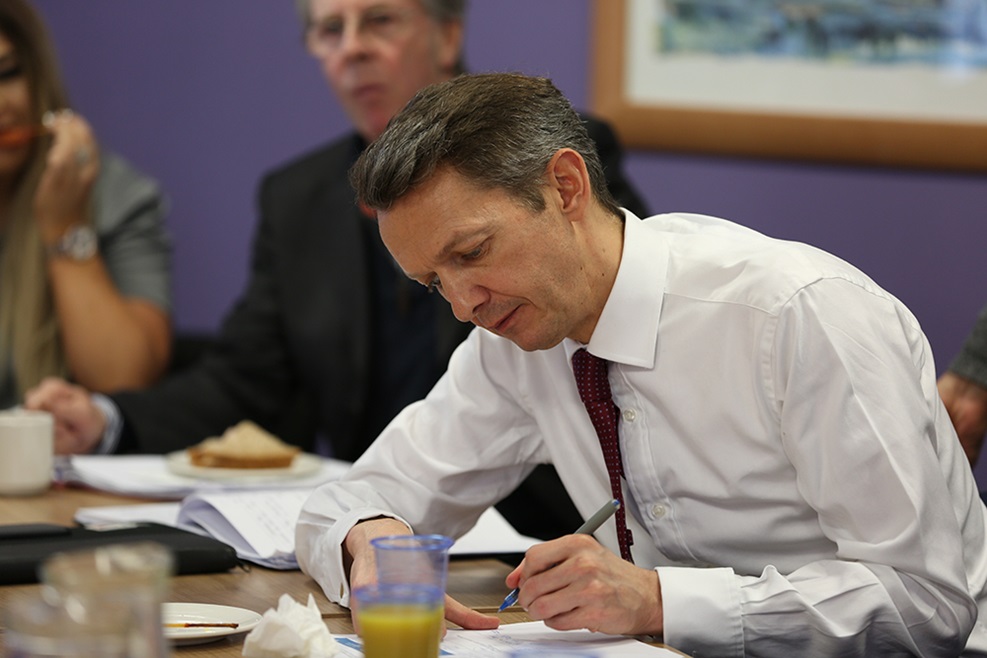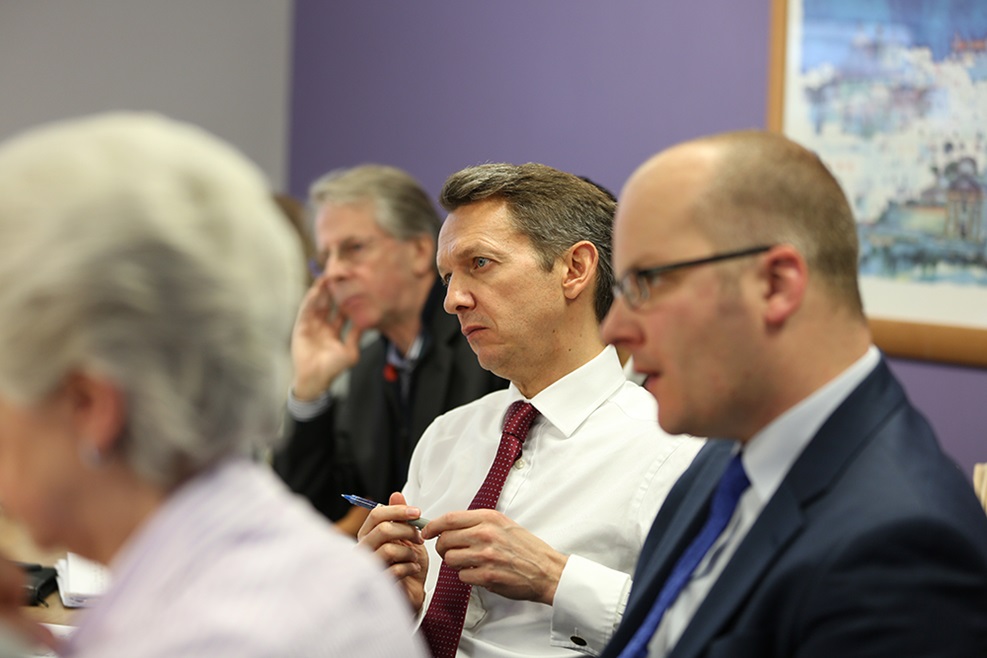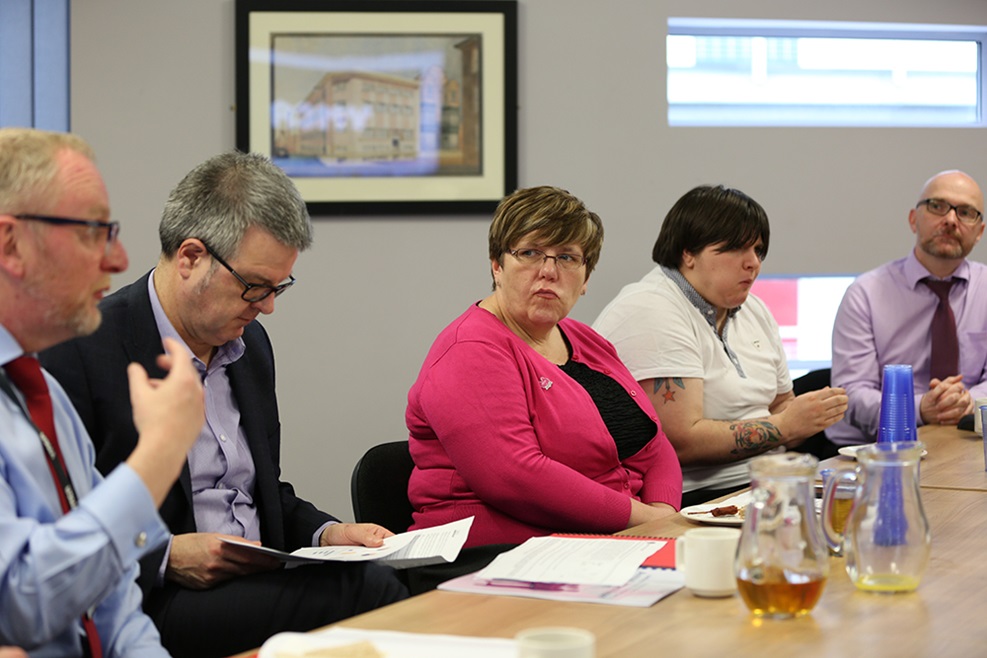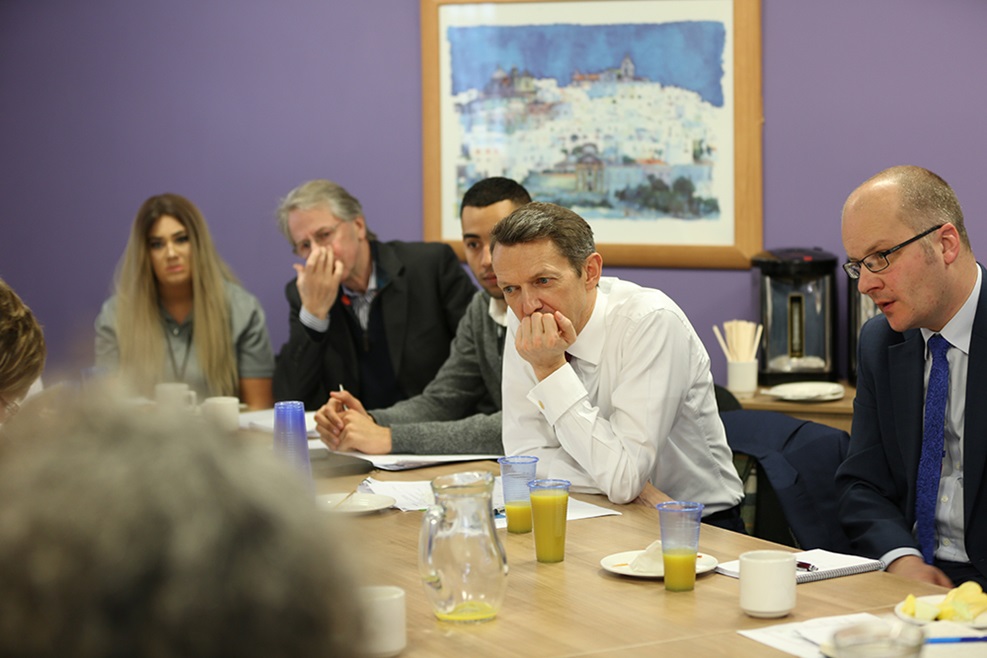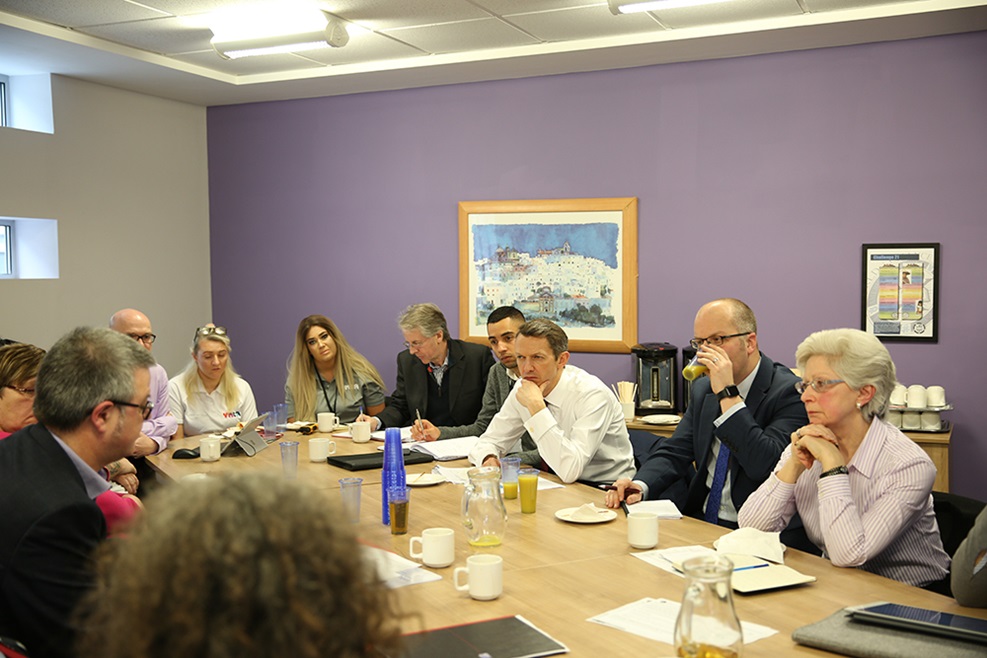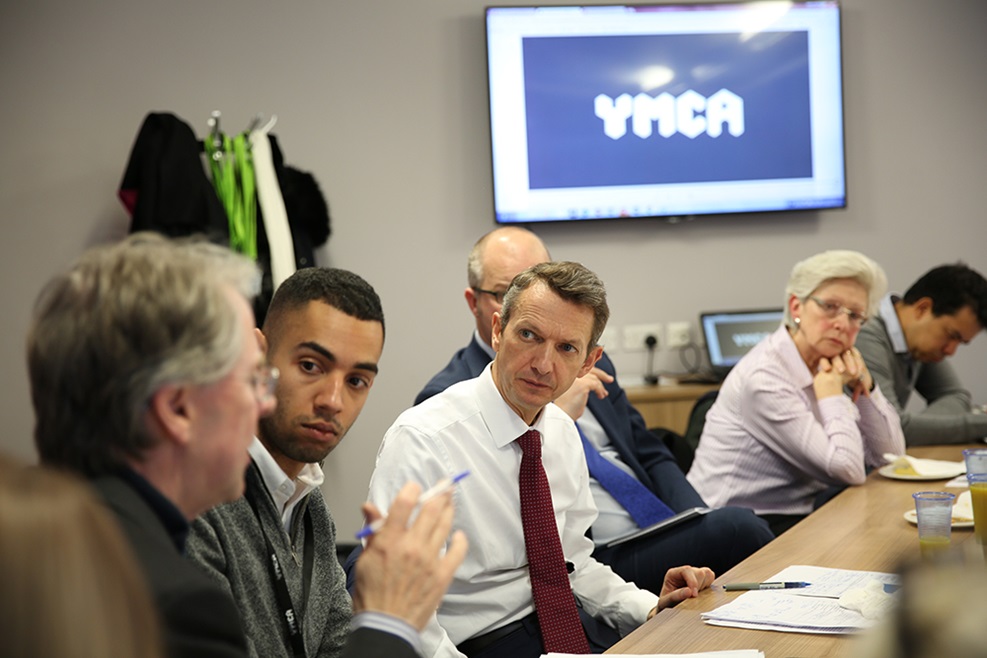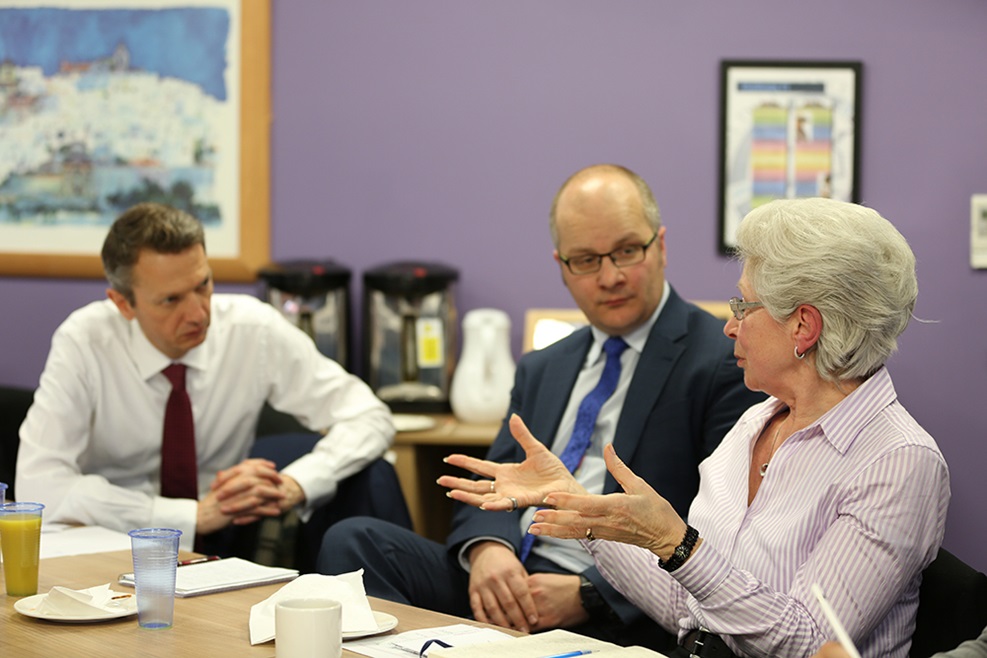Andy Haldane's Town Hall blog: Stoke-on-Trent
Last week I visited Stoke for my latest Town Hall visit, in partnership with the North Staffordshire YMCA. The YMCA’s motto is “empowering young people” and that was very much the theme for the day. I spent it speaking with teachers and pupils at Thistley Hough Academy and then at a YMCA roundtable to discuss local issues with YMCA leaders, workers and volunteers, local charities, chambers of commerce and the local council.
I had not realised what an incredibly rich history the YMCA movement has. The first YMCA was set up right back in 1844 in the churchyard of St Paul’s cathedral, little more than a stone’s throw from where I work. Very quickly, YMCAs started to spread to other cities right across the UK and indeed to other countries around the world.
Their purpose was to support young people who had come to cities in search of work as part of the first wave of mass-industrialisation. Some came from towns, while others were village people, typically far from home, family and friends. The YMCAs provided them with shelter, food and friendship. In that role, YMCAs quickly became one of the key civic institutions of the 19th century, set up to deal with the painful social and economic adjustments accompanying the Industrial Revolution.
If growth and endurance are measures of success, it is clear the YMCA movement has been a massive one. More than 170 years on, YMCAs are going strong. They operate in 119 countries around the world. There are 116 YMCAs in England and Wales alone, helping over 600,000 people in some form or other each year. They are still providing shelter, food and friendship for young people. But as my visit to North Staffs YMCA made clear, so much more besides: social activities and entertainment, sport and exercise, work and training (either as volunteer or staff), visits to other parts of the country etc.
As in the mid-19th century, YMCAs remain key civic institutions. One difference from the past – an ironic one – is that these days YMCAs are often dealing with the consequences of deindustrialisation, rather than industrialisation. These days, they are often helping young people whose lives and livelihoods, or their parents’, have been set back by the loss of iconic local industries, many forged at the time of the Industrial Revolution. In Stoke, that means the traditional heartland industries, such as ceramics and steel.
Speaking to local charities and to YMCA volunteers, the benefits of providing people, often distant from the workplace and their families, with a base were absolutely clear. From that base many were building skills, technical and social, getting a foot on the housing ladder, (re-)entering the world of work, building families and relationships. It was inspiring to hear some of their stories of personal progress and the role local charities and voluntary organisations were playing in this.
There is much still to do in the area, with levels of unemployment and poverty high relative to the rest of the UK, the quality of housing and social spaces low and availability of public transport and finance weak. These structural problems are long standing, but may have meant the positive effects of low interest rates and a more robust banking system have not trickled down fully to Stoke over recent years. At the same time, the local community spirit is incredibly strong in Stoke. And a city centre regeneration project is underway, including through investment in improved infrastructure. Schools, too, are improving.
Earlier that day, my school visit was the latest in a sequence I have done for the charity Speakers for Schools. They are currently running a campaign with the theme “What Skills Will Young People Need for Work in 2030?”, which was the topic of my talk. The school, an Academy, had itself been on quite a journey, with a strong pick-up in performance over recent years. It was also truly diverse with, incredibly, more than 40 different first languages spoken.
It is clear from historical experience that diversity works wonders for creativity. And creativity is one of those human skills robots will not quickly or easily replace, certainly not by 2030. (Some of my thoughts on this topic are covered in an article in the i newspaper.) My question and answer session with the pupils at the school made clear the value of that diversity. There were some cracking comments and questions from the pupils on the future of work and skills, some of which left me stunned and stumped. That bodes well for their future (if not mine).
I would like to thank Danny Flynn (who heads North Staffs YMCA) and Sara Williams and Rob Lamond (from Staffordshire Chambers) for their help and support during the roundtable and their inspiring work; and to Holly Hartley (the Principal), Laura Wake and the pupils at Thistley Hough Academy for welcoming and inspiring me.
Next stop – Airdrie and Glasgow.

